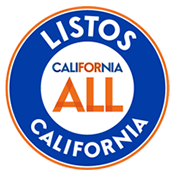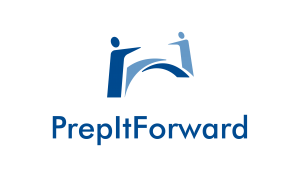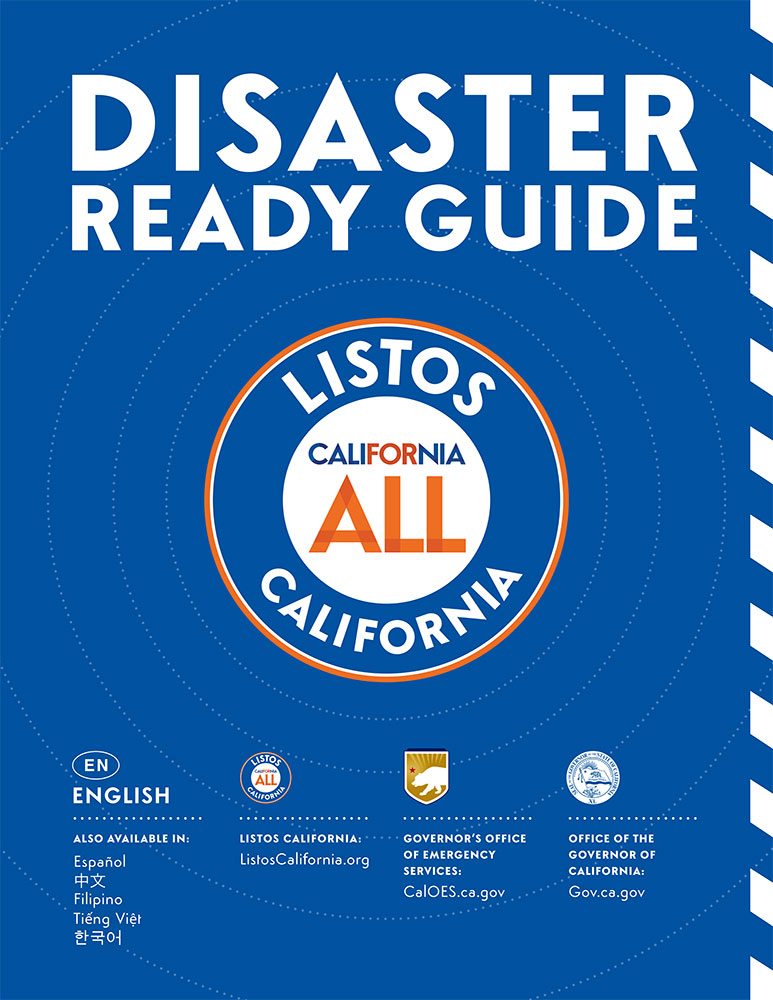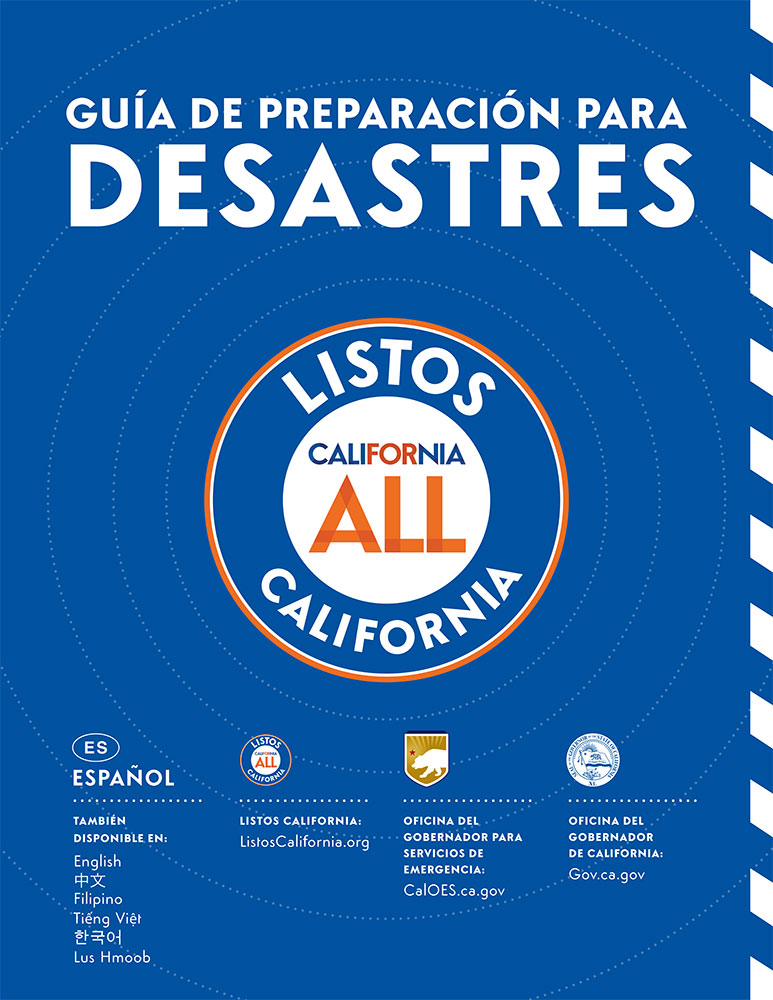
People with disabilities are 2 to 4 times more likely to die or sustain a critical injury during a disaster than people without disabilities.
In 2016, the Autism Society Inland Empire started its Safety and Disaster Preparedness Initiative. We have provided training to law enforcement officers, families, and individuals with developmental disabilities. Topics range from building a safety plan, being prepared for a disaster, active shooter training, interacting with law enforcement, using a fire extinguisher, what to do during an earthquake, hands-only CPR, and more.
We are grateful for the financial support from LISTOS California and the Inland Empire Community Foundation in 2020 to expand our outreach into the I/DD community to help our families prepare for natural disasters such as fires and earthquakes. The Listos (Ready) California Emergency Preparedness Campaign is a new campaign to connect at least one million of the most vulnerable Californians.
The Autism Society Inland Empire is working with subject matter experts on this project to help individuals and families know where to find life-saving resources and to prepare to survive a disaster.
We are so proud of these PEER Trainers! We put a call out to adults with autism and other developmental disabilities. They have spent so much time learning this material so they can teach our community to be safe. Thank you to Eric Aguilar, Adrian Castillo, Jordan Ibarra, Eric Ramirez, and Thomas Cameron-Stuart for their dedication to LISTOS Training. These young adults spent hours training so they can help our community be a safer place for all. Show your love and appreciation by liking or sharing the video!
Preparedness Guides
Planned Power Shut Offs
High winds, low humidity, and locally dry vegetation mean public safety power shutoffs (PSPS) may be needed to keep our communities safe. Southern California Edison will attempt to alert customers in advance; when the weather shifts suddenly, we may be unable to provide advance notice. They have an interactive outage map showing areas being monitored for PSPS and any ongoing power outages. To report outages not shown on the map, please call (800) 611-1911.
Helpful Tips
- Charge your devices and medical equipment: Ensure your phones, tablets, and other essential electronics are fully charged.
- If your prescription medications are low, get your refills before a public safety power shutoff.
- Stock up on essentials: Have enough water, non-perishable food, and medications to last a few days.
- Flashlights and batteries: Keep flashlights and extra batteries handy in case of a power outage.
- Stay informed: Sign up for notifications through your energy company to receive outage alerts. Monitor local news and weather updates for the latest information.
- Pack a go-bag in case you need to leave.
- Make a plan just in case. Where would you go? Who can you call?
- Write down or put in your phone contact info for people who can help support you.
- Secure outdoor furniture and garbage cans.
Should You Stay or Go?
If you feel that staying at home could compromise your safety or well-being, it might be best to relocate temporarily. Please always prioritize your health and safety when you make this decision.
Staying at home:
- Put ice in your refrigerator/freezer to help keep your food cold during an outage.
- In-Home Supportive Services (IHSS): You may receive services from your provider (or another enrolled provider) during a power shutoff or even if you evacuated from your primary residence.
If you need to leave, please remember a few things:
- Bring any required medical equipment, if possible;
- Bring current medications and a medication list;
- Bring dentures, eyeglasses, and any supplies needed for multiple days.
- Bring sensory or comfort items such as noise-canceling headphones and sensory tools to help manage anxiety.
- If you cannot evacuate with your medications, a pharmacy should be able to assist you in obtaining your medication. To find an open pharmacy during an active emergency, visit www.RxOpen.org, which has maps that include open and closed pharmacies.
Resources
For many of our adults and families, staying in a shelter may not be practical due to anxiety and sensory sensitivities. Think about staying with family or friends or a hotel. If you need assistance with a hotel voucher or other resources:
Inland Regional Center: Can assist eligible individuals and their families in finding, accessing, and sometimes paying for services and supports, including emergency housing, supplies such as backup power for medical equipment, and other critical assistive technology devices. Contact [email protected]
Disability Rights California (DRC): A hotline is now available to help medically vulnerable Californians and health and community care facilities find resources in their communities during power shutoffs. The hotline is (833) 284-3473. During power shutoffs or potential power shutoffs, hotline assistance will be available from 9:00 a.m. to 9:00 p.m. Assistance is available in many languages. 711 Telecommunications Relay Services (TRS) are available for individuals with hearing or speech-related disabilities.
Distress Helpline: This 24/7, 365-day-a-year crisis counseling and support service is for people experiencing emotional distress related to natural or human-caused disasters. Call 1-800-985-5990 or text TalkWithUs to 66746 to connect with a trained crisis counselor.
Rolling Start: Rolling Start is our local Independent Living Center, which has the Disability Disaster Access & Resources Program (DDAR). This program may provide ADA-accessible transportation, Hotel accommodations, Food assistance, and support during public safety power shutoffs (PSPS) outages. Call (909) 890-9516.
CalFresh: CalFresh provides ongoing food assistance to low-income people through monthly benefits on an Electronic Benefits Transfer (EBT) card, which can be used to purchase food at authorized grocery stores and farmer’s markets. If your food spoiled due to a power outage, you can request a replacement of your CalFresh Food benefits. Call your local office. You must make this request within 10 days of your food spoiling.
More Resources:
Power Shutoff Resource Guide and How Disability Rights California Can Help You–
https://www.disabilityrightsca.org/post/power-shutoff-resource-guide-how-disability-rights-california-can-help-you
Ready.gov– https://www.ready.gov/be-informed
Inland Regional Center Emergency and Disaster Resources– https://www.inlandrc.org/emergency-and-disaster-management/
Sign up for life-saving alerts. Have the latest information on your phone.
FEMA APP

Download the FEMA app for free on the App Store and Google Play. Learn safety tips about what to do before, during, and after disasters.
RED CROSS FIRST AID APP

Get instant access to information on handling the most common first aid emergencies. Disponible en español. Available on Apple, Google Play or text “GETFIRST” to 90999
Thank you to our Funders and Community Partners on this project






Paul Timmons, “Disaster Preparedness and Response: The Special Needs of Older Americans,” Statement for the Record, Special Committee on Aging, U.S. Senate, September 20, 2017, available https://www.govinfo.gov/content/pkg/CHRG-115shrg30022/html/CHRG-115shrg30022.htm
Autism Society Options Policy
This Resource Guide was developed to provide families and professionals with an opportunity to find resources related to autism in the Inland Empire in one place.
All information provided or published by the Autism Society Inland Empire is for information purposes only. Specific treatment, therapy or services should be provided to an individual only at the direction of the individual’s doctor, caregiver, or other qualified professional. References to any treatment or therapy option, program, service, or treatment provider are not an endorsement by the Autism Society. References of treatments, therapies, programs, services, and/or providers are not intended to be comprehensive statements. You should investigate alternatives that may be more appropriate for a specific individual. The Autism Society assumes no responsibility for the use made of any information published or provided. The Autism Society Inland Empire provides information, but it does not constitute medical or legal information. Referrals provided are suggestions to organizations that might help, but do not constitute a recommendation. The Autism Society Inland Empire cannot be held responsible for consequences that arise from individual dealings with a professional or organization. The inclusion of any organization does not imply endorsement, and omission does not imply disapproval. The Autism Society Inland Empire may add or remove organizations from this list at its discretion.




